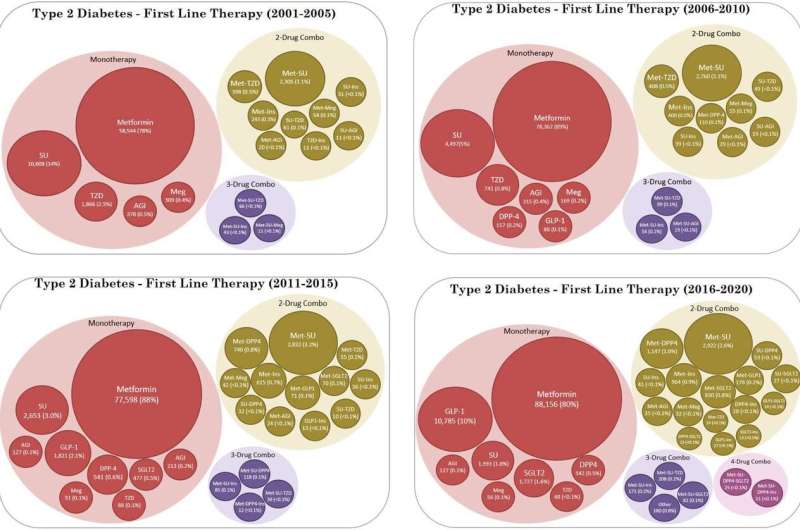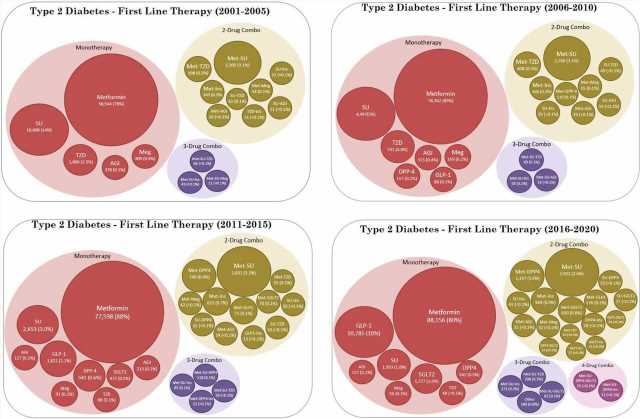New study highlights the increasing complexity of diabetes treatment

A study from the Therapeutics Initiative at the University of British Columbia investigated diabetes treatment patterns in British Columbia over the last two decades. The study, published in BMJ Open Diabetes Research & Care, highlights the increasingly complex treatment choices facing physicians and patients with type-2 diabetes and uncovered some startling trends.
A real-world study of over 300,000 adult participants treated for type 2 diabetes over the last 20 years found prescribing patterns that run contrary to treatment guideline recommendations. The use of metformin monotherapy, recommended as first line treatment in most patients, has declined by 17% over the last 10 years. The study also found that initial treatment has intensified, with rates of combination therapy more than doubling over the study period.
The study also found a decreasing trend in baseline blood glucose levels for newly treated patients over the last decade. Lead author Dr. Greg Carney says, “While we recognize guidelines recommend a patient-centered treatment approach, the trend towards treatment intensification, particularly among those with well-controlled blood glucose, is cause for concern. Overtreatment can put patients at increased risk of potential harms such as hypoglycemia.”
The availability of new blood glucose lowering medications provides physicians with numerous treatment options. Prescribing decisions are further complicated by government reimbursement policies and evolving guideline recommendations. The researchers hope their study’s findings will highlight the need for continued knowledge translation and quality improvement aimed at improving diabetes treatment.
Source: Read Full Article
